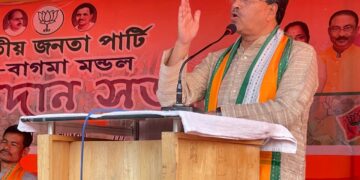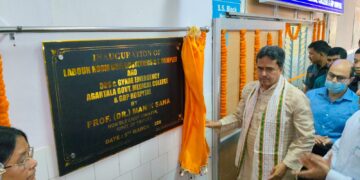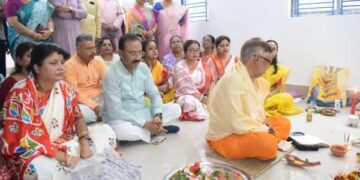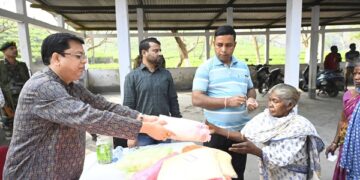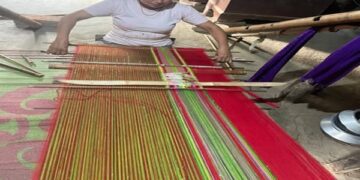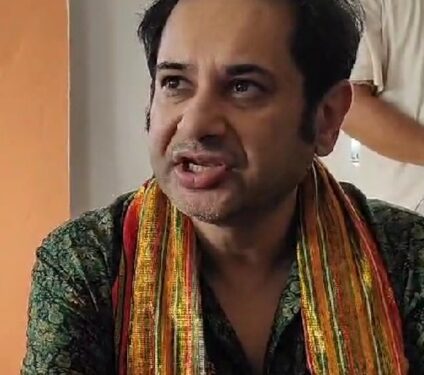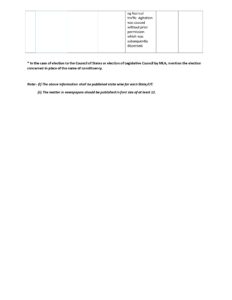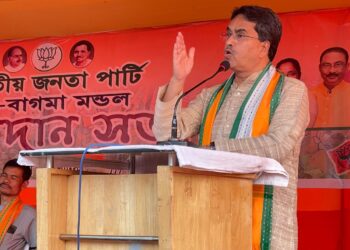Agartala, August 30: In a recent interview, Pradyot Kishore Debbarma, founder of the ruling BJP alliance partner TIPRA Motha and head of Tripura’s royal family, voiced deep concerns over the post-flood challenges facing the state.
He highlighted the lack of proper coordination within the ruling coalition, the need for stronger government actions against communal violence as certain elements within the ruling party, who are competitors for the Chief Minister’s position, deliberately destabilizing the government to serve their own interests, and the upcoming developments related to the TIPRA Accord.
Debbarma expressed his frustration with the lack of involvement of TIPRA Motha in key government decisions, despite having two ministers in the cabinet.
“Many times, it doesn’t feel like TIPRA Motha is part of the government,” he stated, lamenting that the party is often sidelined in the decision-making process.
He emphasized that while the Chief Minister, Director General of Police, and other top officials have been responsive, effective ground-level implementation requires better coordination between BJP and TIPRA Motha workers.
He further noted that certain elements within the ruling party, who are competitors for the Chief Minister’s position, may be deliberately destabilizing the government to serve their own interests.
These actions, he warned, are not only harmful to the state’s governance but also undermine the Chief Minister’s efforts.
On a positive note, Debbarma commended the state government’s efforts to engage with opposition parties, including the Communists and Congress, during the ongoing crisis.
He described this gesture as a crucial step towards overcoming the challenges posed by the recent floods.
However, Debbarma was critical of the national media for its inadequate coverage of the crisis in Tripura. He argued that without sufficient national attention, the state might not receive the help it desperately needs from the rest of the country.
The TIPRA Motha leader also condemned the recent communal violence in Ranirbazar, suggesting that it had been orchestrated for political gain.
He urged the people of Tripura to remain calm and uphold the state’s rich tradition of religious secularism and cultural harmony.
“We don’t want to become another Bangladesh and defame the image of our state or our country,” he said, stressing that the majority of the population rejects violence, and only a small section engages in it for short-term political gains.
Debbarma called on the police to take firm action against those responsible for the violence and criticized any attempts within the government to destabilize the administration or the Chief Minister.
He urged the Chief Minister to take steps to counter any perception of partisanship, which, he warned, could be detrimental to both the state’s unity and its governance.
In a significant revelation, Debbarma hinted at a major development related to the TIPRA Accord, set to take place in Delhi on September 5.
While he did not provide specific details, he suggested that the remaining members of the banned militant group NLFT are expected to surrender, a move in which TIPRA Motha has played a crucial role. Nonetheless, he expressed dissatisfaction with the union government, arguing that more should be done to address the demands of the tribal community so that the call for a separate state does not arise.
As Tripura grapples with the aftermath of devastating floods and the challenges of maintaining communal harmony, Debbarma’s statements underscore the complexities of governance in the state and the need for unity and decisive action in the face of adversity.

